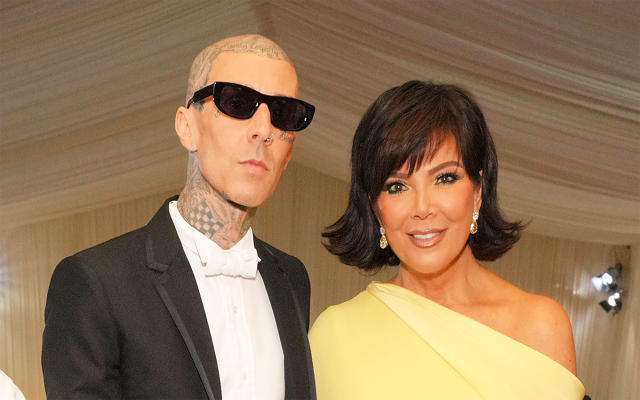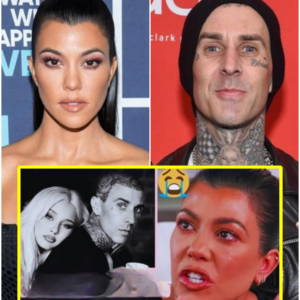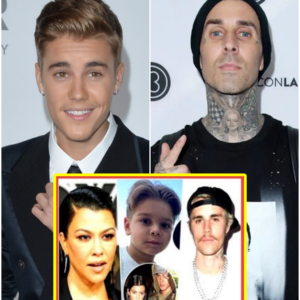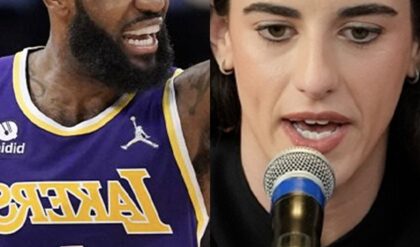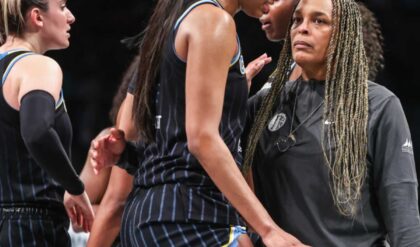The Alabama Barker Controversy: A Deep Dive into Social Media Drama and Cultural Sensitivity
Alabama Barker, the 18-year-old daughter of Travis Barker and stepdaughter of the Kardashian-Jenner clan, recently found herself at the center of a social media storm. Known for her high-profile family and public persona, Alabama’s latest controversy has sparked significant debate about online behavior, cultural appropriation, and the pressures of growing up in the limelight.

The incident began when influencer Kira posted a video comparing Alabama Barker to Kylie Jenner, specifically addressing their friendships and alleged appropriation of Black culture. Kira’s critique, which examined the cultural implications of their behaviors, quickly gained traction online. Instead of engaging constructively with the criticism, Alabama responded by mocking Kira’s appearance in a TikTok video, targeting her under-eye bags. This video, although deleted shortly after, was saved and shared widely before it could be removed, amplifying the controversy.
Kira, in contrast, handled the situation with notable grace and composure. She addressed Alabama’s attack calmly, pointing out the irony of Alabama’s mockery given their past interactions. Kira highlighted how Alabama had previously sought her advice and complimented her appearance, making the personal attack particularly jarring. Kira’s response was praised for its dignity, contrasting sharply with Alabama’s crude approach.
The backlash against Alabama has been swift and intense. Critics on social media have condemned her actions, noting that mocking someone’s appearance is an inappropriate response to criticism. The situation has sparked a broader discussion about the ethics of social media interactions, the impact of privilege, and the challenges of growing up in the public eye.
Alabama’s behavior is not an isolated incident. Her past actions, including underage drinking and provocative social media posts, have drawn criticism and raised concerns about her parents’ oversight. At 18, her continued focus on attracting attention through controversial means has only intensified the scrutiny she faces. Critics argue that her actions reflect deeper issues of insecurity and a struggle to navigate her identity amidst fame and privilege.
The controversy also touches on broader issues of cultural appropriation. Alabama’s attempts to engage with different cultural elements while benefiting from nepotism have led to accusations of insensitivity. Her response to Kira’s critique, rather than addressing the concerns raised, deflected with personal attacks, exacerbating the controversy.
This situation underscores the complexities of navigating fame and public scrutiny, particularly for young public figures. Alabama’s response to criticism reflects a pattern of handling feedback with personal attacks rather than thoughtful engagement. This approach raises questions about her maturity and emotional intelligence.
As Alabama Barker’s story continues to unfold, it serves as a critical juncture in her public life. How she chooses to address the backlash and grow from this experience will significantly impact her future interactions and public perception. The controversy highlights the importance of handling criticism with grace and maturity, and the need for public figures to navigate their fame with a sense of responsibility.
In conclusion, Alabama Barker’s recent social media controversy illustrates the challenges of growing up under the spotlight and dealing with public criticism. The debate surrounding her actions sheds light on the ethics of online interactions, the influence of privilege, and the need for emotional maturity. As Alabama moves forward, it will be essential to observe whether she can address the criticism constructively and evolve in a way that reflects respect and understanding.
News
(B) Travis Barker MISSED when Kourtney Kardashian returned home drunk after Kardashians party. (VIDEO)…
Courtney Kardashian made headlines just seven weeks after giving birth when she decided to attend the annual Kardashian Jenner Christmas party sans pants. Despite recently welcoming her fourth child, Rocky, with boyfriend Travis Barker, Courtney seemed anything but tired as…
(B) Kourtney Kardashian Shocking Revelation on Why Her Relationship with Travis Barker Ended. (VIDEO)…
In the public eye, Travis Barker and Courtney Kardashian’s relationship was once perceived as an unbreakable union, filled with passion and devotion. However, recent revelations paint a vastly different picture, revealing the underlying turmoil that ultimately led to its demise….
(B) Kourtney Kardashian SECRET XTAPE With Minor Justin Bieber REVIEWED by The Feds. (VIDEO)
The recent discovery of a video purportedly featuring Courtney Kardashian and Justin Bieber has ignited a firestorm within the entertainment industry, prompting intense speculation about its potential ramifications. This revelation, coupled with reports of a raid on Diddy’s home, has…
(B) EXTREMELY SHOCKING: Kris Jenner Lied About DNA Test To Khloe Kardashian As O.J. Simpson Could Be Her Father. (VIDEO)..
In a moment etched into the memories of internet users, Chris Jenner once orchestrated a dramatic DNA test to dispel rumors surrounding Khloe Kardashian’s paternity. Speculations swirled, stemming from Jenner’s revelations in her memoir “Chris Jenner and All Things Kardashian,”…
(B) Kourtney Kardashian finally shows proof her son Reign Disick is actually Justin Bieber’s son. (VIDEO)..
Courtney Kardashian recently embarked on an exciting escapade to Australia and New Zealand with her husband, Travis Barker, for his tour. However, it was their youngest son, Rain, who stole the spotlight during their adventures. With his mischievous antics and…
(B) NEWS HOT; Travis Barker Found Evidence of Kourtney Shared Baby With Justin Bieber (video)…
The rumor mill surrounding Justin Bieber and the Kardashian family has been churning for quite some time, igniting speculation about his connections with various members. While the details are murky and often sensationalized, let’s delve into the complexities of these…
End of content
No more pages to load
